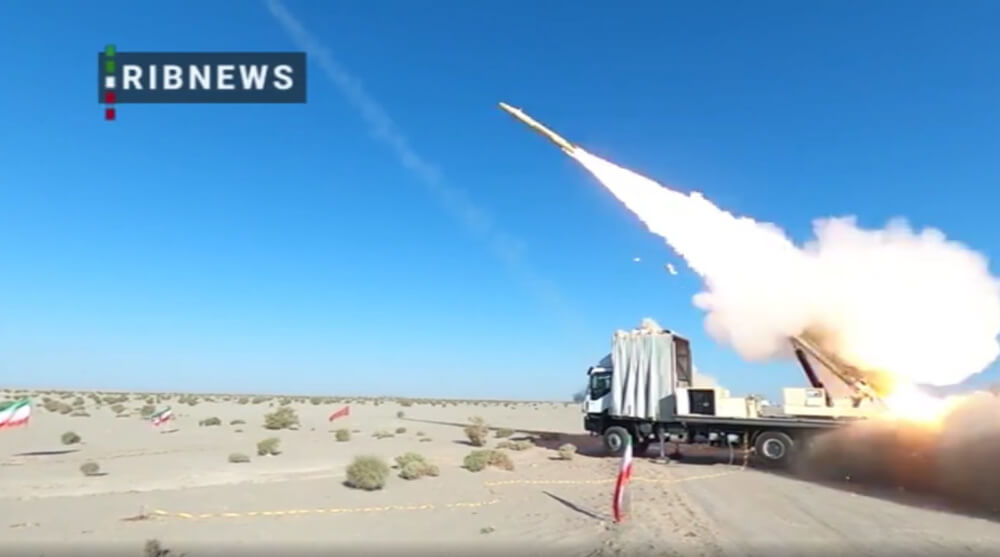Iran has transferred short-range ballistic missiles to Russia for use in its ongoing war against Ukraine, Secretary of State Antony Blinken said on Tuesday.
The powerful weapons would boost the Russian military at a critical juncture in its terrifying war with Ukraine. With Ukrainians desperately calling for extended US weapons assistance, Blinken said that he would visit Kyiv for consultations.
The US administration labeled the move as a “dramatic escalation” in Tehran’s support for Russia’s war efforts, voicing anxieties about the potential implications for Ukraine’s security and sovereignty.
“We’ve warned Tehran publicly, we’ve warned Tehran privately, that taking this step would be a dangerous escalation,” Blinken said. “Russia has now received shipments of these missiles.” He added that Russia is likely to use the shipments within weeks and that new sanctions on Tehran would be announced later Tuesday.
Negotiations between Russia and Iran for missile transfers date back to September 2022, when then-Russian Defense Minister Sergei Shoigu visited Iran to inspect the Islamic Revolutionary Guard Corps’ Ababil missile systems. That visit marked a key moment in Russia-Iran military cooperation since the outbreak of the Russia-Ukraine war.
Iran, however, has denied these allegations. In a statement to CNN, Iran’s Permanent Mission to the United Nations reiterated its stance on the Ukraine conflict, stating that Iran considers providing military assistance to either side in the conflict as inhumane.
The statement emphasized that Iran not only refrains from engaging in such actions but also urges other nations to stop supplying weapons to the warring sides.
Why Is The West So Concerned About Iranian Missiles?
Iranian missiles have sent ripples across the Western world, prompting the Ukrainian military on September 9 to urge its Western allies to permit the use of their supplied weapons to strike military depots inside Russia.
This appeal stems from growing concerns that Iran has provided ballistic missiles to bolster Russia’s war efforts in Ukraine. However, military experts believe that these missiles are not “game-changing” weapons.
The Iranian Ababil and Fath-360 missiles, with ranges of 86 kilometers and 120 kilometers, respectively, are limited in their operational reach. This restricts their use to targets relatively close to Russia’s borders and the front lines in Ukraine.
Moreover, the accuracy of Iranian-made missiles has also come under scrutiny. A recent study by the James Martin Center for Nonproliferation Studies raised questions about the real threat posed by Iran’s ballistic missile capabilities.
Reflecting on an April attack on Israel in which approximately 350 missiles, rockets, and drones were launched, the report noted that most of these were intercepted by Israeli and US defense systems.

Sam Lair, a senior analyst from the center, remarked that while Iran’s missiles displayed “some ability to strike Israel,” their lack of precision diminishes their utility for conventional military operations.
Lair added, “If Iranian missiles can’t hit targets with precision, their role shifts—they become more useful as terror weapons than as effective military tools.”
Despite the limitations in accuracy and range, Iranian missiles still pose a serious threat to Ukraine. This likely explains the intense reactions from the U.S. and its allies, as the possibility of these weapons being deployed in the conflict could significantly change the battlefield dynamics.
Indian defense analyst Vijainder K Thakur emphasized that if reports of the Fath-360 missile transfers are accurate, Russia might already possess hundreds of these missiles in its arsenal.
Thakur argued that while the Fath-360 lags behind systems like HIMARS in terms of accuracy, its 30-meter precision still makes it a credible threat on the battlefield. Thakur further noted that the Fath-360 offers an affordable and effective alternative to Russia’s more expensive missiles.
Given the limited availability and higher costs of Iskander-M missiles, Russia may find the Fath-360 a more practical choice for hitting targets in Ukraine’s operational rear areas.
If inducted, the widespread deployment of these cheaper Iranian missiles could allow Russian forces to strike more targets and potentially shift the tide in localized engagements.
- Contact the author at ashishmichel(at)gmail.com
- Follow EurAsian Times on Google News